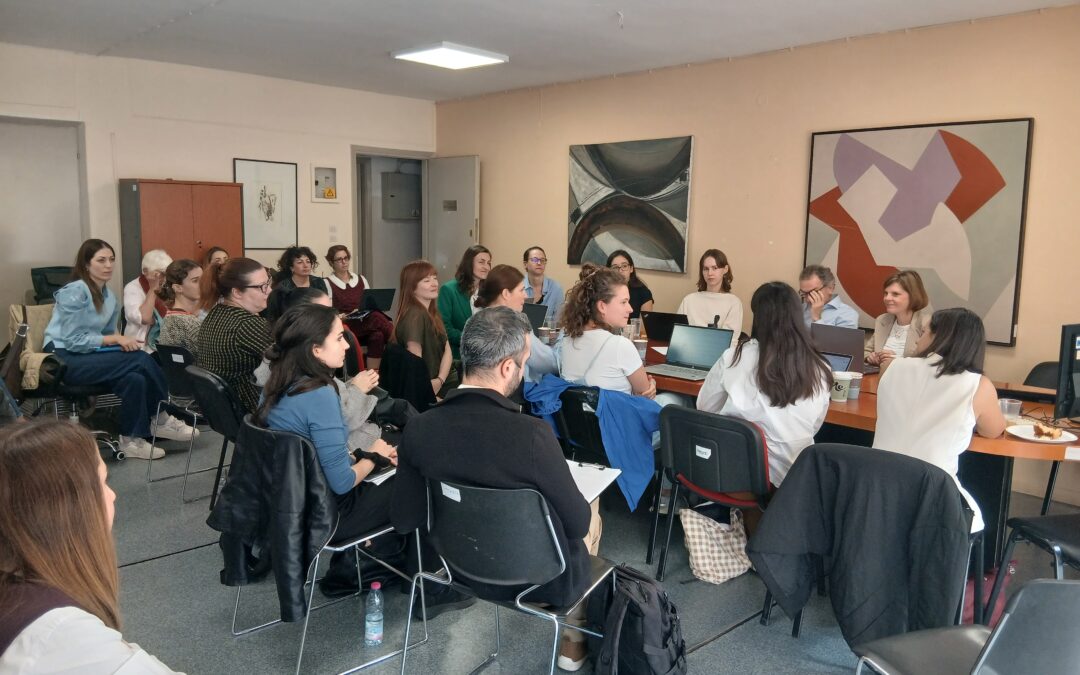
Oct 15, 2025 | Advocacy, Events, News
On 13-14 October 2025, the International Commission of Jurists (ICJ) and the Greek Council for Refugees (GCR) held a transnational workshop in Athens on strategic litigation before the European Court of Human Rights (ECtHR) to challenge the detention of migrant children.
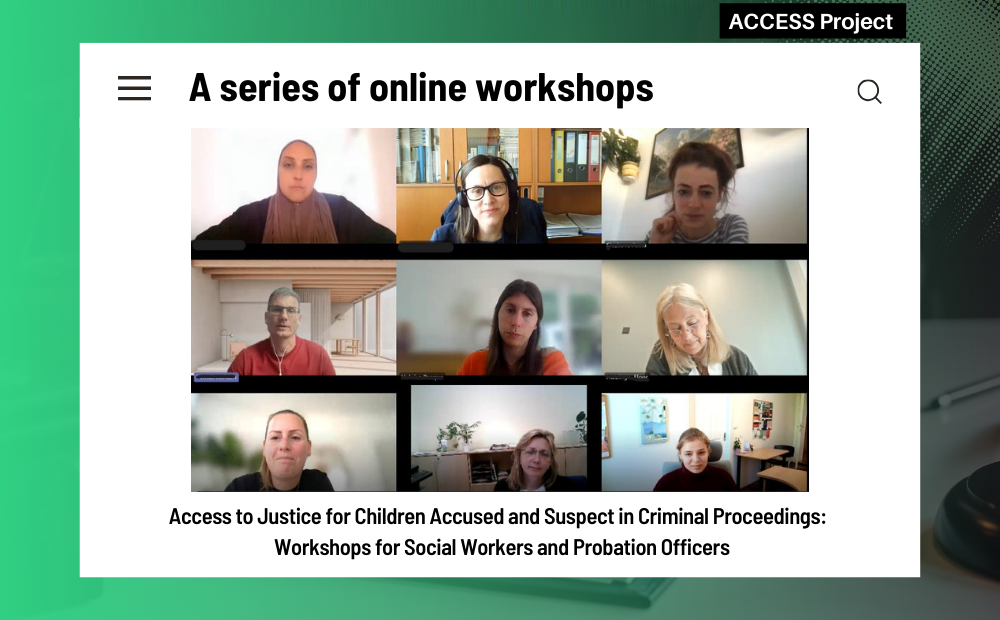
May 20, 2025 | Advocacy, Events, News
The International Commission of Jurists (ICJ) organized a series of workshops for social workers and probation officers working with children from Belgium, Bulgaria, the Czech Republic, Poland, the Netherlands and Slovakia. The goal was to share experiences, identify common challenges, and highlight effective practices in supporting children in conflict with the law.
Topics discussed included methods of conducting individual assessment of children, diversion options as alternatives to formal criminal proceedings, the availability of support organizations, the role of parents throughout justice processes, and the impact of institutional discrimination on children in conflict with law.
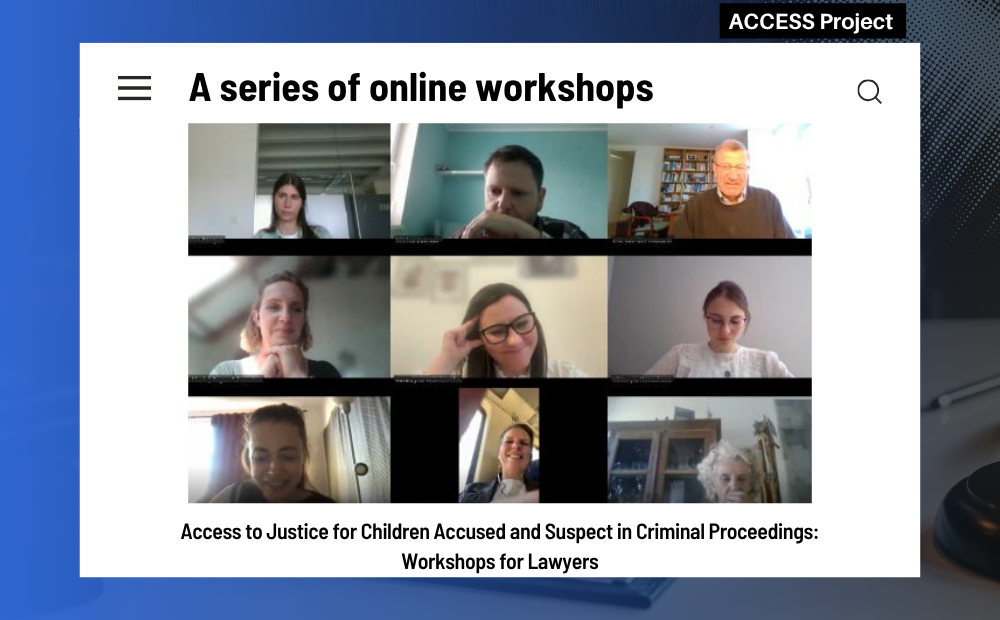
May 7, 2025 | Advocacy, Events, News
In April 2025, the International Commission of Jurists (ICJ) and partners organized two online workshops for legal practitioners from six EU Member States who work with children in conflict with the law. These workshops follow up on the Transnational Exchange Roundtable held in March 2025 in Brussels and aim to explore specific issues in greater depth and strengthen legal assistance for children in conflict with the law.
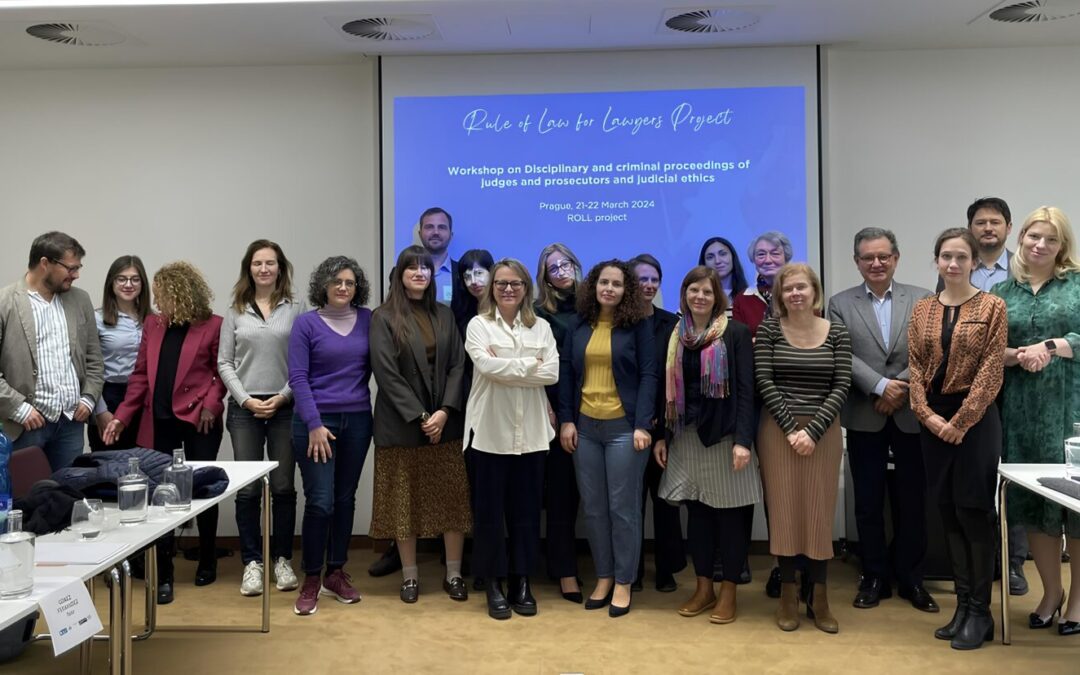
Mar 22, 2024 | Advocacy, Agendas, Events, News, Video clips
On 21-22 March 2024, the International Commission of Jurists (ICJ), together with Forum for Human Rights, Human Rights in Practice, aditus and Free Courts, held a workshop on tackling attacks on judicial independence and the autonomy of the prosecution through disciplinary and criminal proceedings, in Prague.
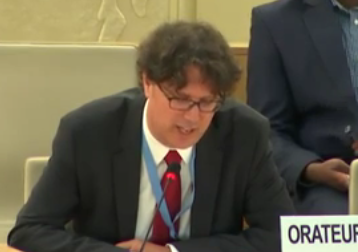
Jun 24, 2019 | Advocacy, Non-legal submissions
At the UN, the ICJ today highlighted the rights and duties of judges and prosecutors to exercise their freedoms of expression, assembly and association to defend the rule of law and human rights.
The oral statement was delivered in a Clustered Interactive Dialogue with the Independent Expert on Sexual Orientation and Gender Identity and the Special Rapporteur on the Independence of Judges and Lawyers, at the UN Human Rights Council in Geneva.
It read as follows:
“The International Commission of Jurists (ICJ) welcomes the report of the Special Rapporteur on the Independence of Judges and Lawyers on freedom of expression, association and peaceful assembly of judges and prosecutors.[1]
As the report acknowledges, exercise of these rights can be subject to restrictions arising from the fundamental need for judges and prosecutors to be perceived as independent and impartial. At the same time, as the report also emphasizes, any such restrictions must be provided by law and be demonstrably necessary to such legitimate aims, which in turn crucially requires proportionality.[2] These standards have been recognized both globally and in all regions of the world.[3] Any such restrictions on judges should be adopted and enforced by the judiciary itself.
We particularly welcome the recognition in the report that in situations where democracy and the rule of law are under threat, judges and prosecutors have not only the right, but potentially a duty, to speak out and organize in defence of democracy, the rule of law, and human rights, and that this can include participating in peaceful public demonstrations.[4]
Far too often in the ICJ’s work around the world, we see Executive and Legislative bodies, as well as compromised judicial hierarchies, arbitrarily or selectively targeting judges and prosecutors for removal, demotion or other disciplinary measures, precisely for exercising these rights to defend against threats to the rule of law. Examples highlighted in our submission to your study included Egypt, Morocco, Honduras, Hungary and Bulgaria.[5]
Mr. Rapporteur, how can judiciaries, governments, and civil society organisations (including international or regional legal professional associations) act internationally to support judges and prosecutors who are facing such abuse in another country?
The ICJ also welcomes the reports of the Independent Expert on protection against violence and discrimination based on sexual orientation and gender identity. We urge all States to strongly support the renewal of this essential mandate at the current session.
Thank you.”
[1] ICJ’s detailed submission to the Special Rapporteur’s consultation is available at: https://www.icj.org/judgesexpression2019/
[2] Paragraphs 39, 45, 46, 89.
[3] In addition to the global and European, Asian, and American standards cited in the report, see the African Commission on Human and Peoples’ Rights, Principles and Guidelines on the Right to a Fair Trial and Legal Assistance in Africa (2005), paras A(4)(s) and (t), and F(d) and (e).
[4] Paragraphs 61, 69, 90, 102.
[5] See for further information: https://www.icj.org/judgesexpression2019/









